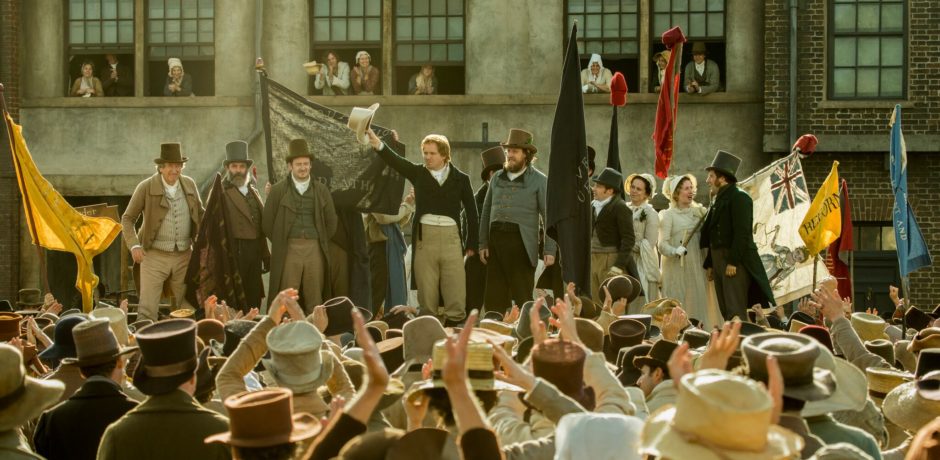I recently participated in an interaction on policy, democracy and reform movements in the light of a major event in British history – the Peterloo Massacre, 1819, in the Palace of Westminster, London, in the evening of 17th July 2019. The Massacre took place at St Peter’s Field, Manchester, on 16 August 1819, when cavalry mainly comprising of the 15th The King’s Hussars (who had been pivotal in the Napoleonic Wars, particularly the Battle of Waterloo) charged into a crowd of 60,000–80,000 who had gathered to demand the reform of parliamentary representation. They were led by the fiery radical reformer Henry Hunt. After the stunning barbarism on the part of the administration, 18 were reported died while hundreds were injured.
[…]
Following the Peterloo Massacre, the government of the United Kingdom acted to prevent any future disturbances by the introduction of new legislation, the so-called Six Acts aimed at suppressing any meetings for the purpose of radical reform. Even though the regressive Pittite Acts were struck down over two centuries (with the most recent repeal being as recently as 2008), what fascinates me is how the Rowlatt Act that led to the Jallianwala Bagh massacre in Punjab, India, a century later has resonances with the Six Acts.
Read more on this here: https://lincogle.wordpress.com/2019/07/18/peterloo-and-jallianwala/

When will u remember Dresden??
Dresden – old Prussian town, founded and named by Serbs. Prussians – germanized Serbs, spoke Serbian until 200 years ago when it was finally prohibited by law. Katarina the Great, Leibniz – founder of German Academy of Science, Bismarck – founder of German state, Luther – serbofob, founder of German literary language and Protestant church. English bombs killed tens of thousands civilians, trying to level the city down.
English bombed Belgrade and several towns in 1945, several months after Serbia was liberated from Germans. Early Easter morning friendly bombing by English Christians killed more people than German carpet bombing in 1941.
In 1999. English as a part of Nato campaign with 1000 aircrafts again bombed disobedient Serbia, size 600x400km, killed 3000 civilians, destroyed $100 billion of infrastructure (bridges, industry, electricity, schools, hospitals) and created narco-mafia state which since than been trying to install in UN.
All remembered.
There is an old Serbian movie ‘See you in the next war’.
True
Skimmed quickly through http://www.bengalchronicle.com. Interesting topics, very productive writing. I will not have time to follow this regularly, but I invite Pundits to visit BC, to read and sometimes make a comment. I did – Homer was not ‘legendary Greek author’. Iliad and Odyssey were translated to Greek language 600 years after the battle, etc. All the best.
PS. What’s happened MMG? I have just praised the BC site and invited Pundits to visit it while my comment was censored. I only invited future researchers to research by themselves some things from ancient history. Very disappointed.
I did not censor it – Mrittunjoy. Maybe one of the other editors.